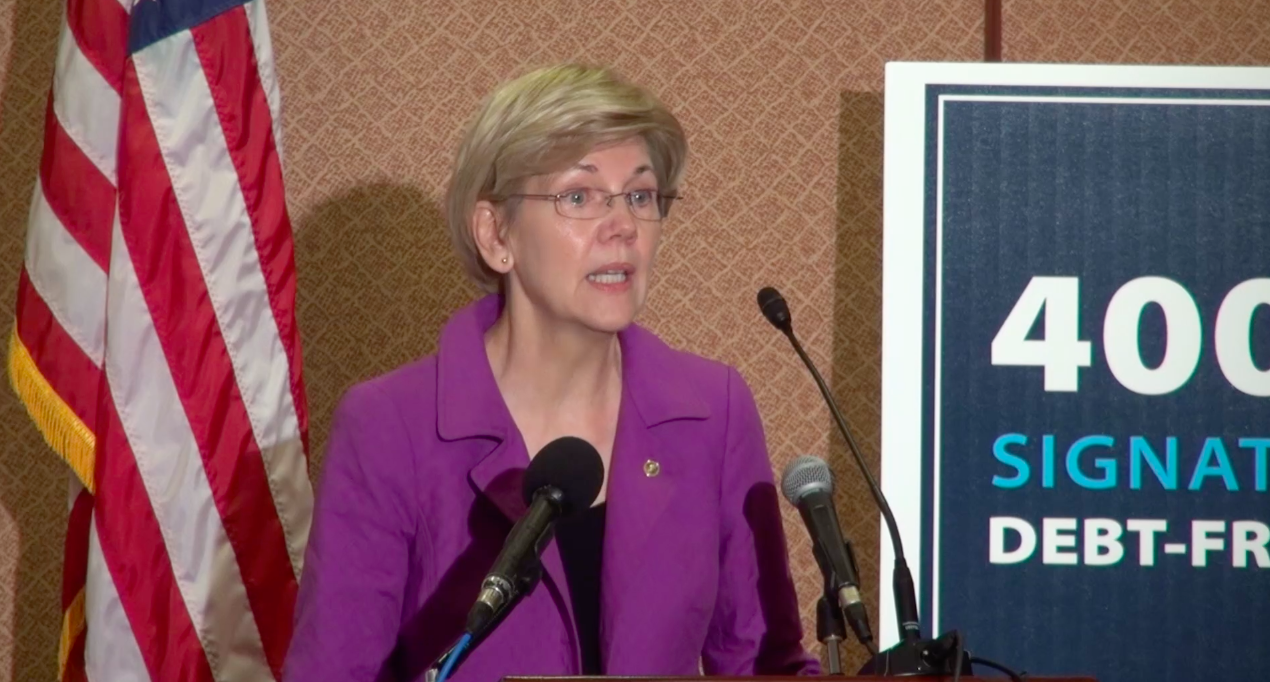WASHINGTON — For young Americans carrying the burden of student loans, debt-free college may sound like a fantasy. But a number of liberal grassroots groups and their allies in Congress argue that it’s the only viable option for the future.
Supporters of a growing debt-free college movement converged on the Capitol Wednesday to build momentum for the cause and formally hand over a petition —signed by some 400,000 Americans— to lawmakers. The event was spearheaded by the Progressive Change Campaign Committee and also allied organizations, among them the Working Families Party and MoveOn.org.
The Progressive Change Campaign is a liberal political action committee active since 2009. It is involved in a number of Democratic causes, including healthcare reform and net neutrality.
At a news conference, Adam Green of the progressive committee urged the activists to get the word out and push college financing reforms into the public consciousness.
“Debt-free college must be a central issue in the national debate in 2016,” Green said.
Sen. Chuck Schumer, D-NY, seconded Green and called out the college financing system.
“It’s backward and wrong that the ticket to getting into the middle class costs so much these days,” Schumer said.
Supporters of the debt-free college idea have proposed increased funding for public universities, higher taxes on the wealthy, reevaluation of corporate subsidies and a partnership between federal and state governments to support higher education.
As American student debt balloons past $1 trillion —it has surpassed national credit card debt— lawmakers have been looking for a way to ease the burden. Hillary Clinton, the Democratic frontrunner for president, recently said that the government should help make college “as debt-free as possible.”
Vermont Sen. Bernie Sanders has called for free public college; his entry into the 2016 race has brought new attention to his plan and similar debt-relief ideas. Others, like Massachusetts Sen. Elizabeth Warren, stop short of free college proposals but back debt-free college as necessary to promote education and secure the American middle class.
Warren, who spoke at the Capitol event, said college was a more accessible option when she left high school in the 1960s. The daughter of working class parents, Warren dropped out of George Washington University and attended the University of Houston, where she completed a degree in speech pathology and audiology at a relatively low cost.
“I grew up in an America that was investing in kids like me,” Warren said.
Rep. Raúl Grijalva, who represents a district in southern Arizona, framed the college debt crisis in terms of the national economy. He said that skyrocketing tuitions harm American social mobility.
“College education was all about tackling inequality, not reinforcing it,” Grijalva said. “College used to be that great equalizer.”
In April, Grijalva joined with Reps. Keith Ellison, D-Minn., and Katherine Clark, D-Mass., in introducing a debt-free college proposal that includes provisions for increased federal student aid. Warren has introduced a similar resolution in the Senate, with two Democrats — New York’s Schumer and Hawaii’s Brian Schatz — as co-sponsors.

